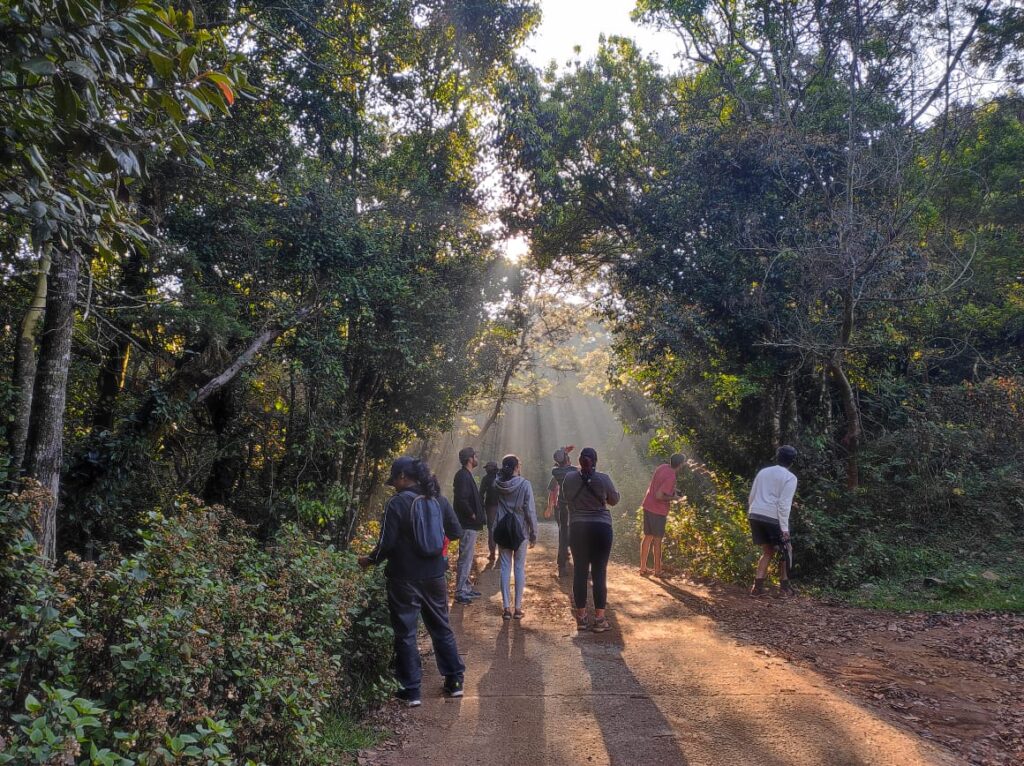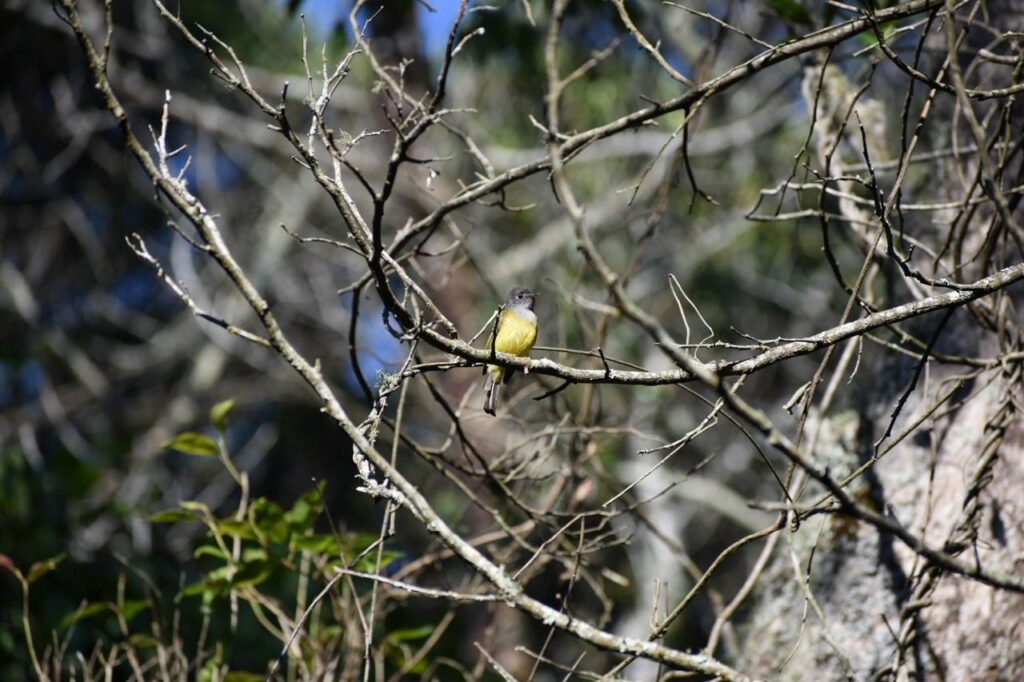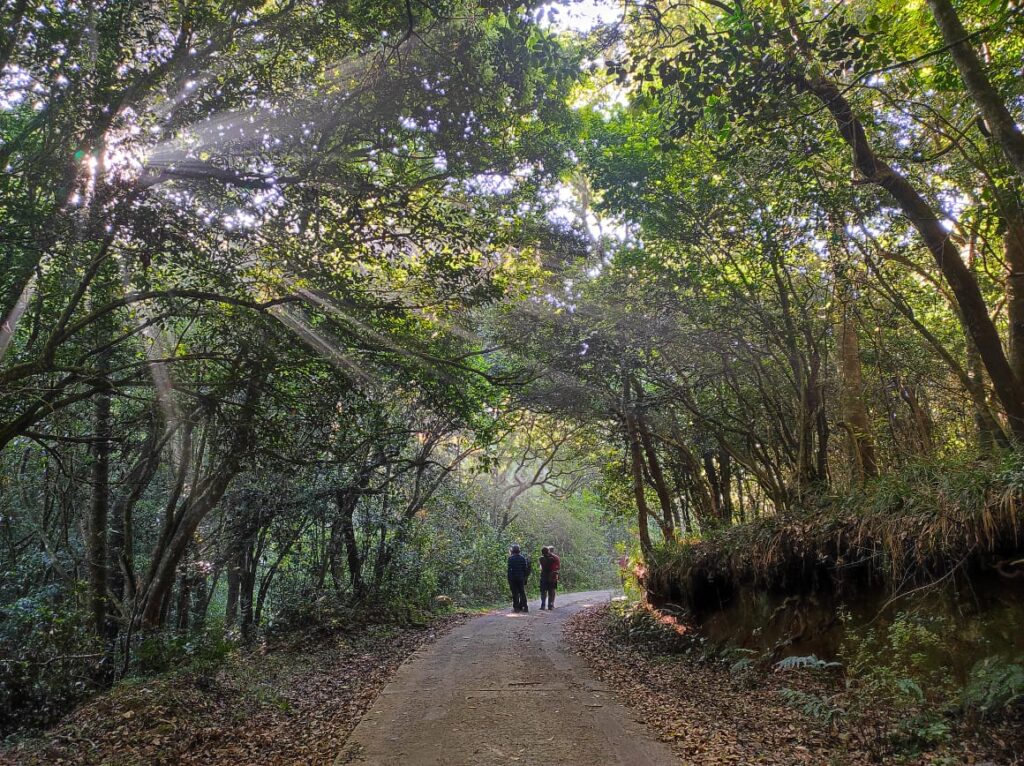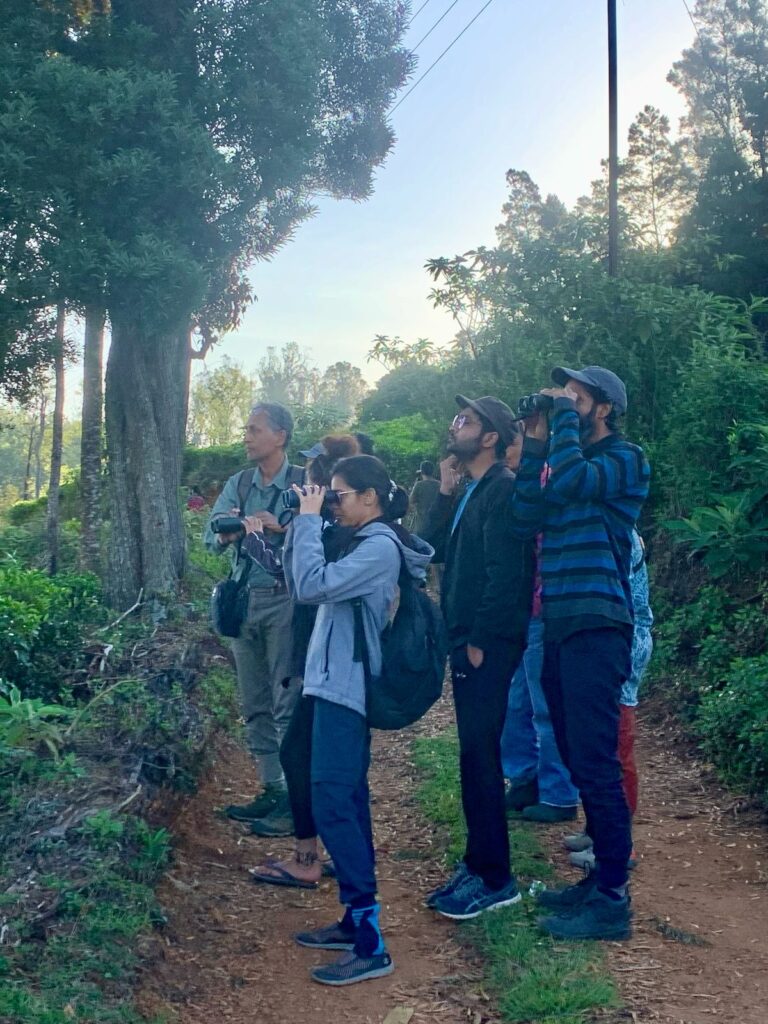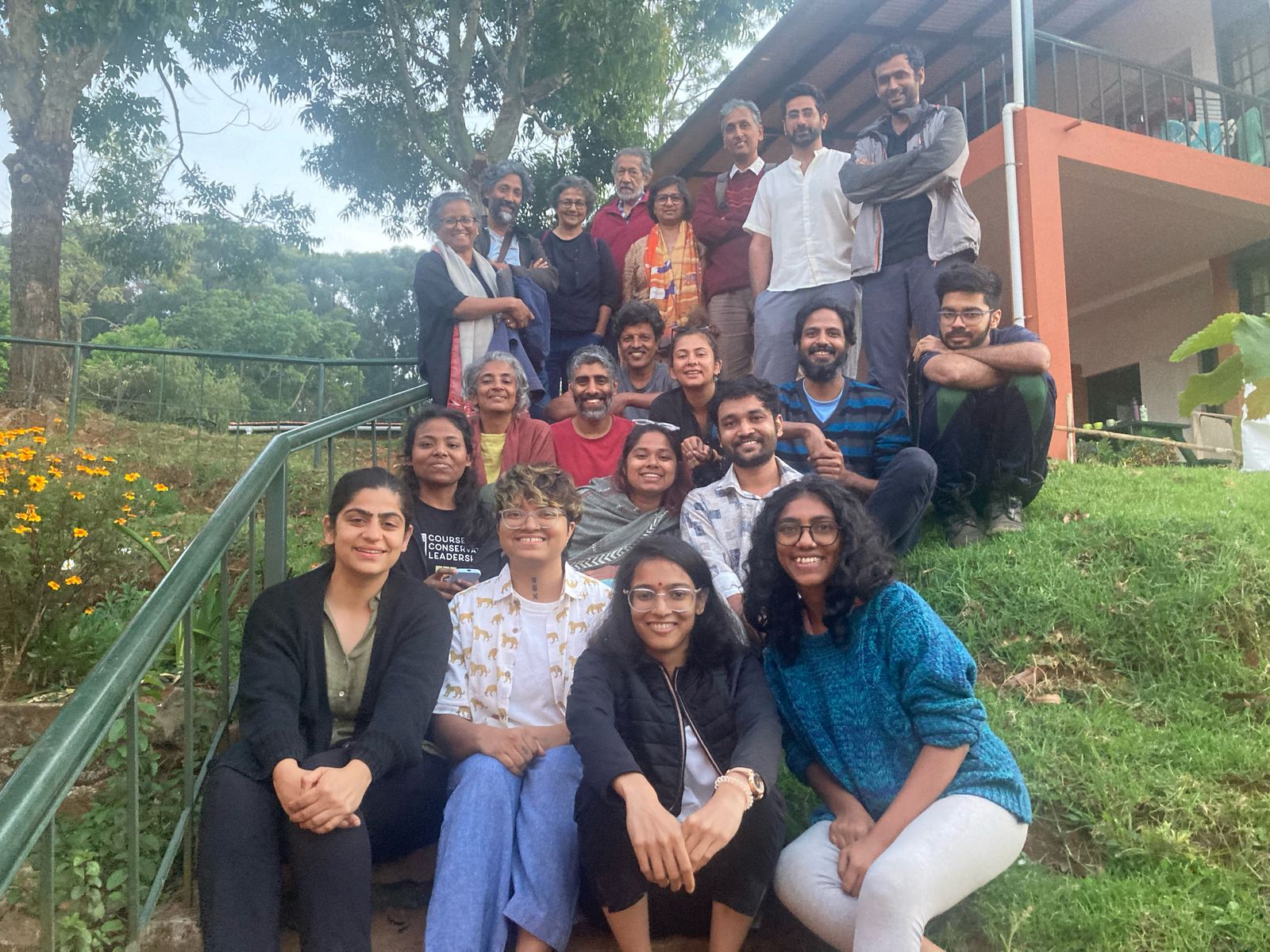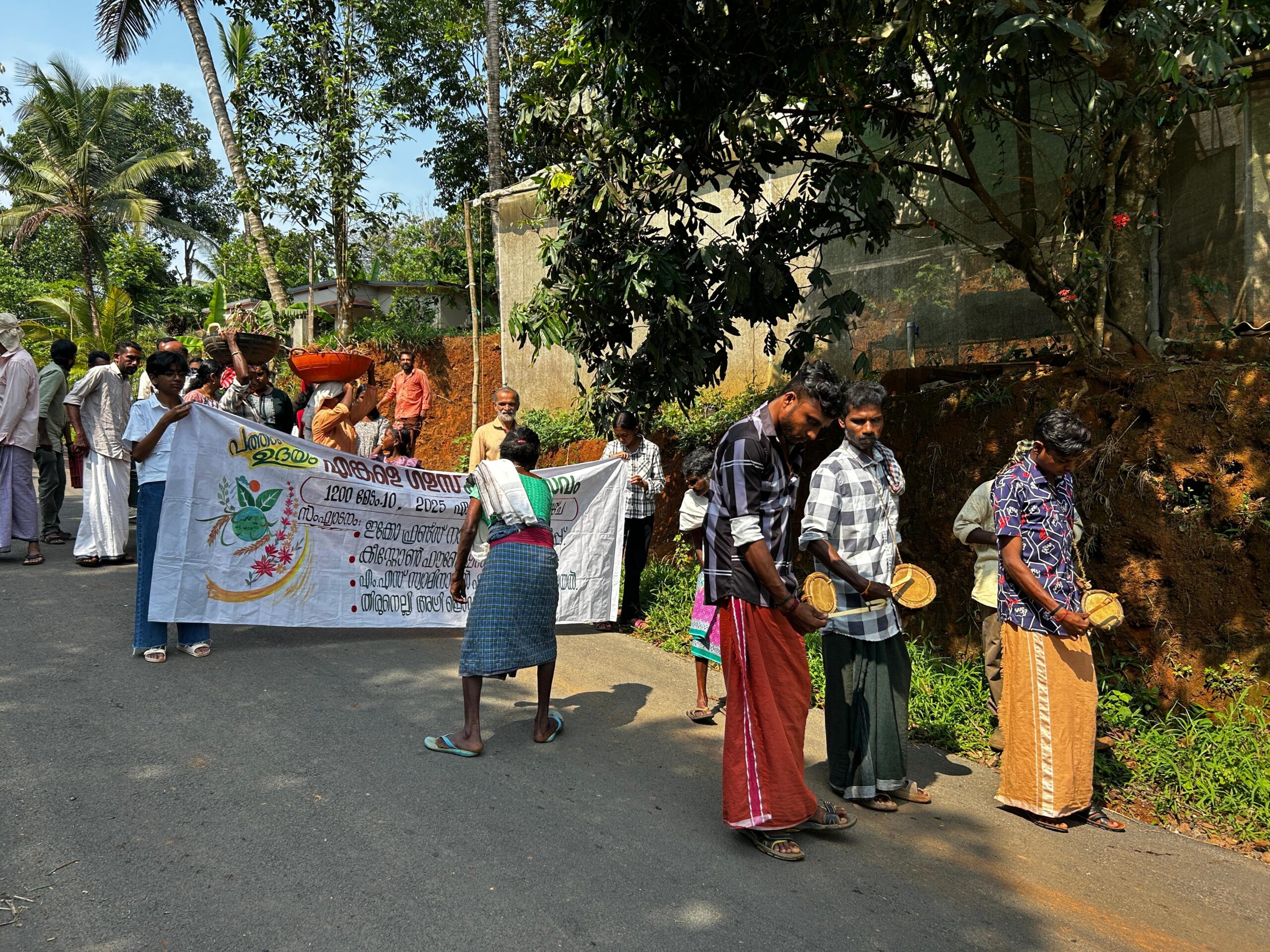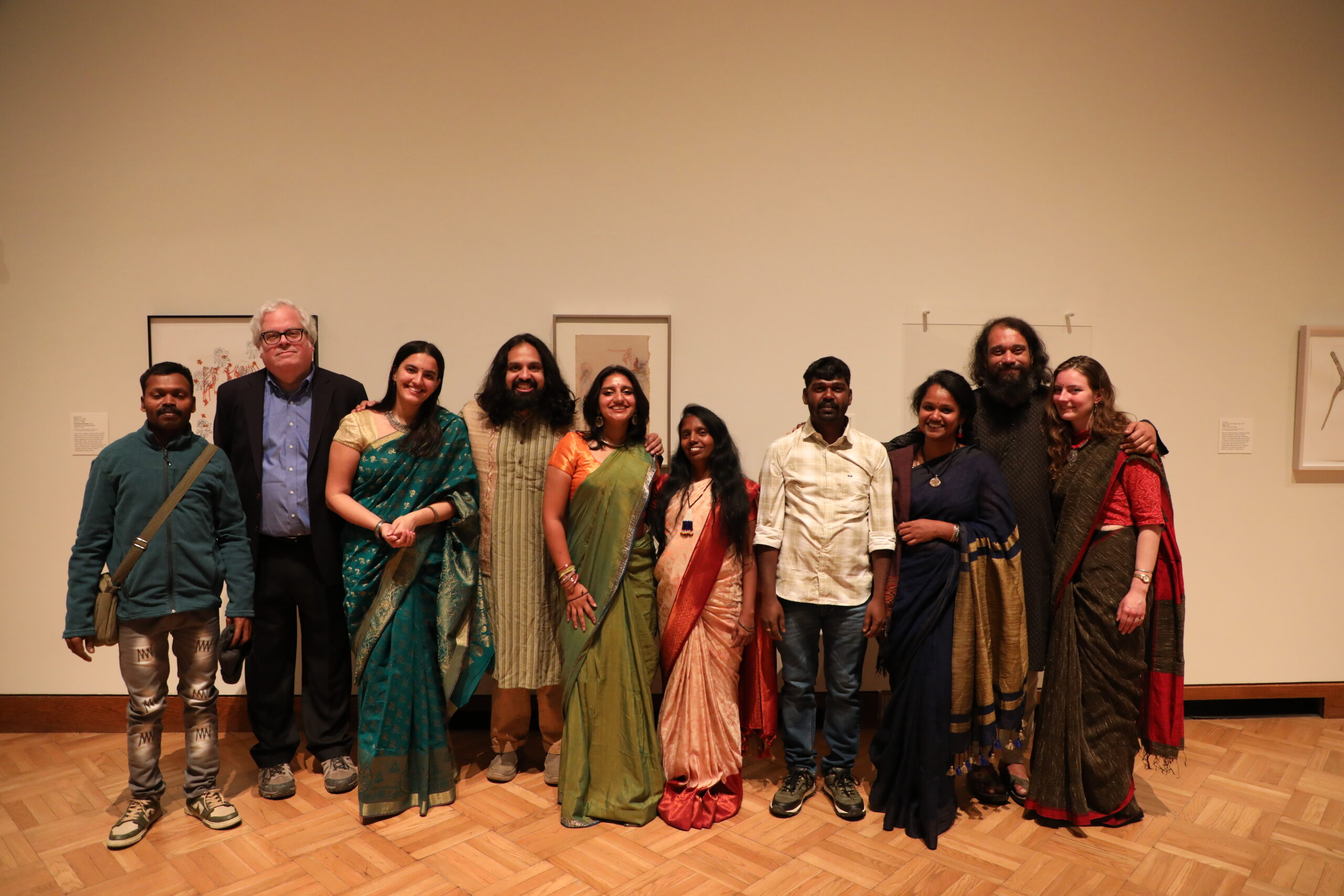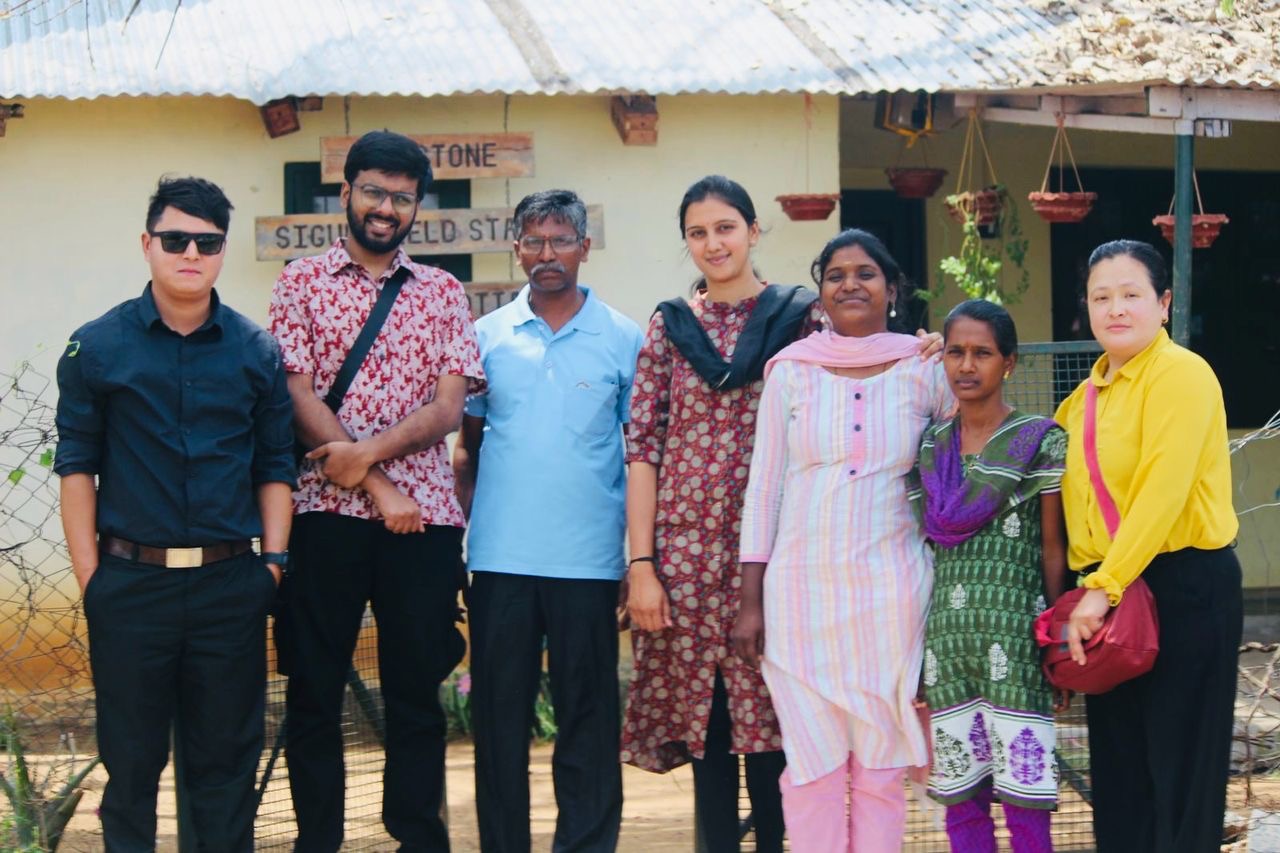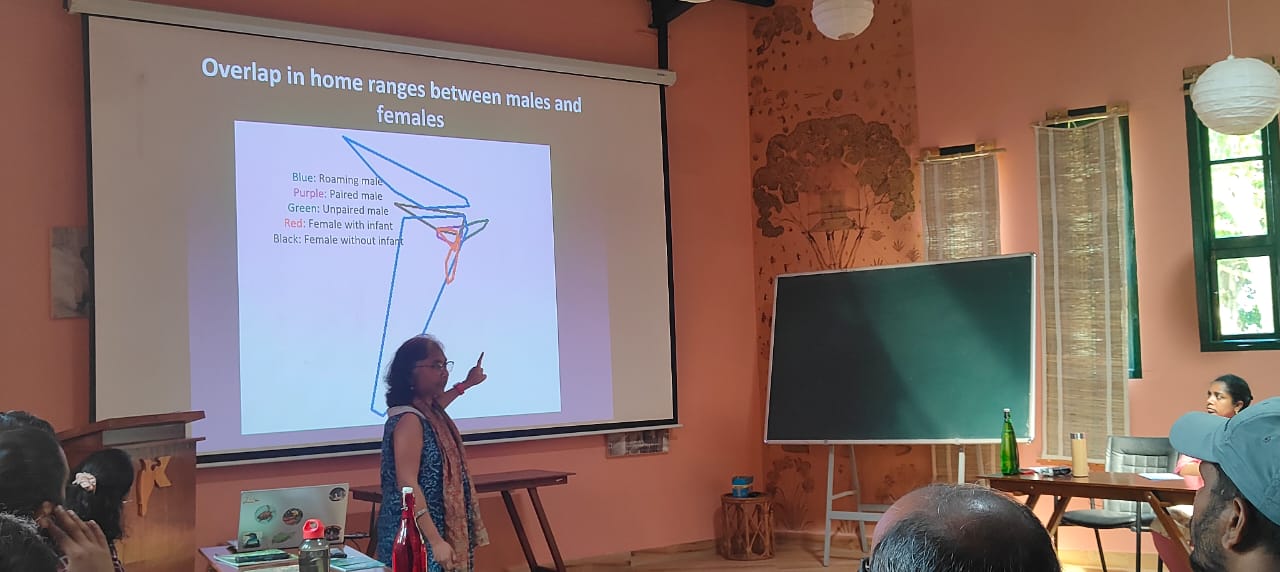By Sushila Murmu, Indigenous People & Local Communities (IPLC) Desk at the Ecological Restoration Alliance in collaboration with Keystone Foundation
21st–25th April 2025 | Keystone Foundation, Kotagiri (Cover photo taken by Ramesh Anna)
The serene landscape of Kotagiri served as the backdrop for the Systems Thinking Workshop organized by the Ecological Restoration Alliance (ERA) at Keystone Foundation. Held from 21st to 25th April 2025, the gathering brought together desk managers and Steering Committee members from partner organisations for a deep dive into ecological restoration through the lens of systems thinking.
The intentions of the workshop were to:
- Build a systems overview of ecological restoration as a sector, and the intervention points relevant for ERA
- Enable a systemic view of restoration, mapping stakeholders involved and ERA’s role, and how the work of different desks of the ERA feed into one another.
- Synthesise the learning into a consumable format, for the larger restoration community.
The workshop began with an immersive visit to Logwood Shola, part of the UNESCO Nilgiri Biosphere Reserve. Late in the day, Participants reflected on restoration within a living landscape before diving into tools such as the Systems Iceberg, Feedback Loops, and Systems Archetypes to understand underlying patterns and behaviours.
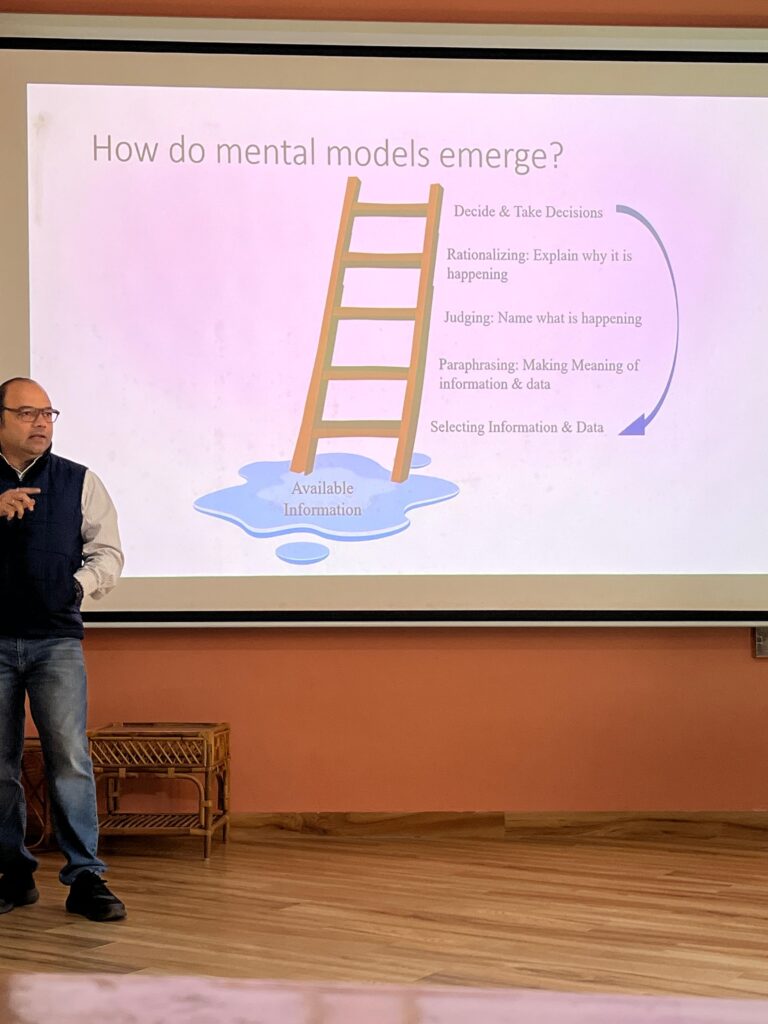
Through group activities, participants identified critical indicators and analyzed system behaviours using tools like Behaviour Over Time Graphs (BOTGs) and Connection Circles. These sessions helped contextualize complex ecological challenges and ERA’s ongoing interventions.
Group Work: Unpacking System Structures
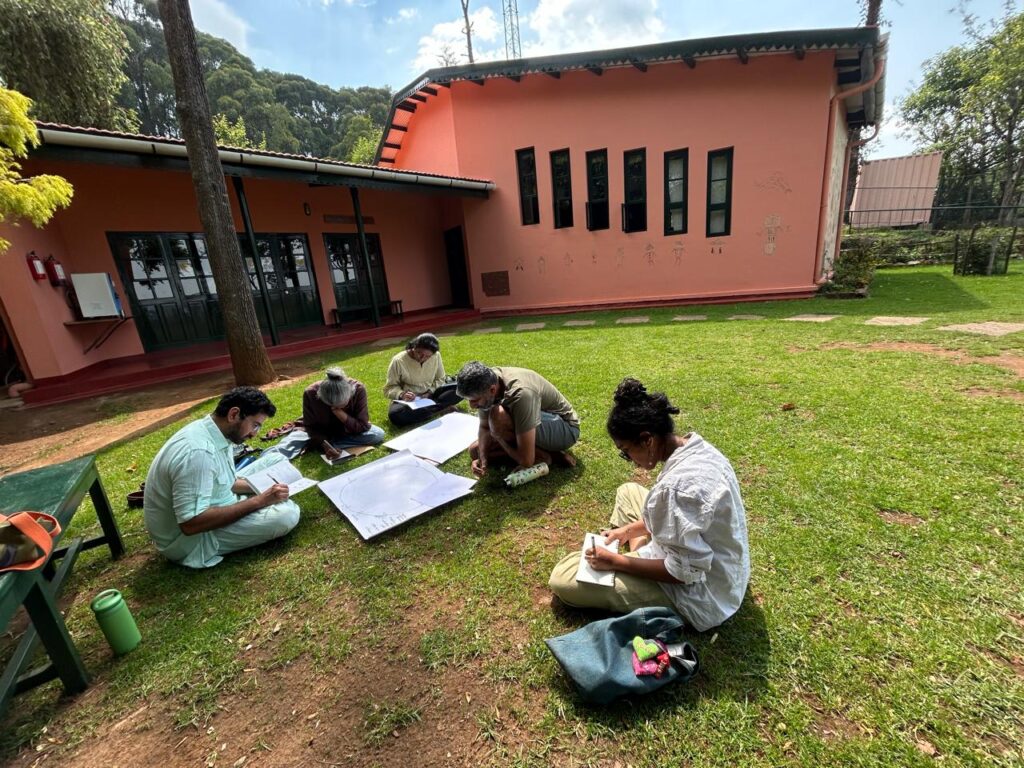
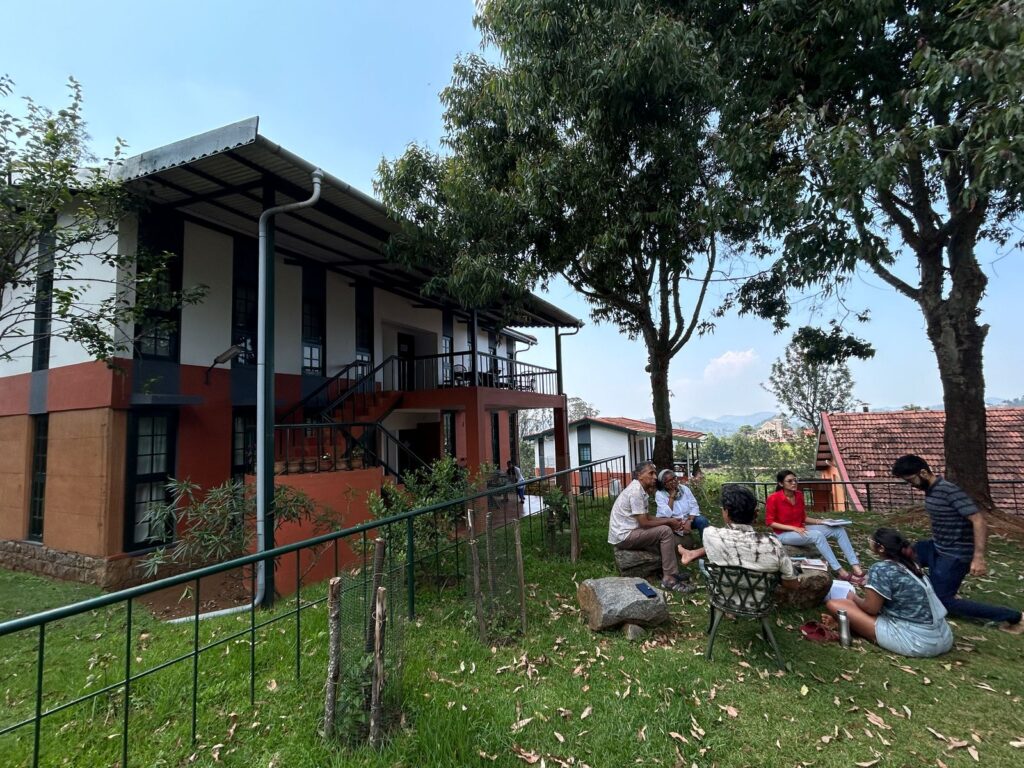
(Above Picture Credits: Divya Mudappa)
Day 2 and 3 saw in-depth group work to create Causal Loop Diagrams, capturing the dynamic interconnections in ecological restoration systems. The DESTA team synthesized these diagrams, culminating in the finalization of ERA’s systems map. These visual tools will support strategic decision-making and cross-desk collaboration in the months ahead.
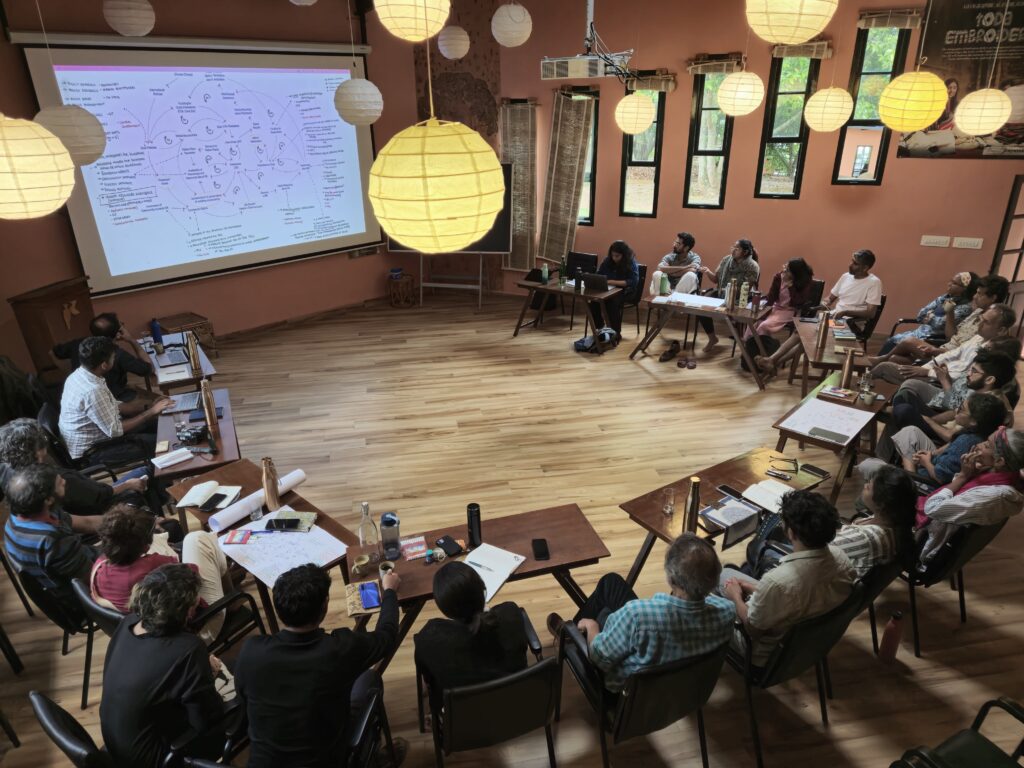
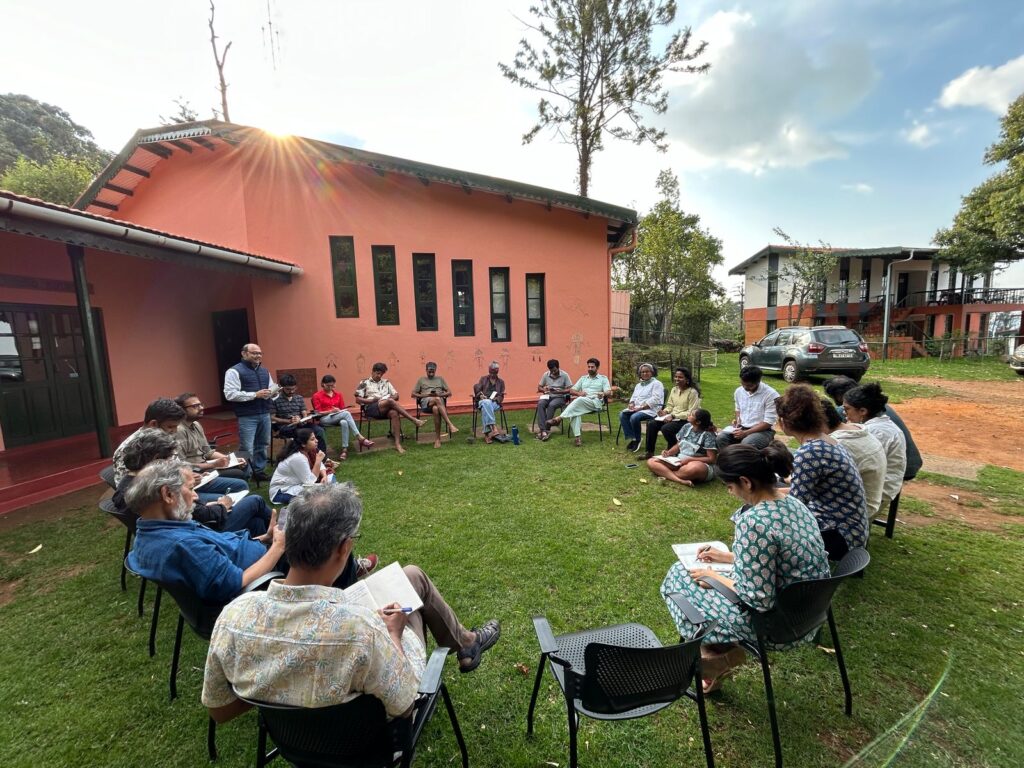
On Day 4, each desk shared their updates, followed by a visioning exercise led by the Steering Committee. Discussions centered around shared goals, collaborative opportunities, and aligning the broader vision of ERA as a unified alliance.
Day 5 included field trips to Bikkapatymund grasslands and Leopard Rock Conservation Site, allowing participants to engage with on-ground restoration models and challenges.
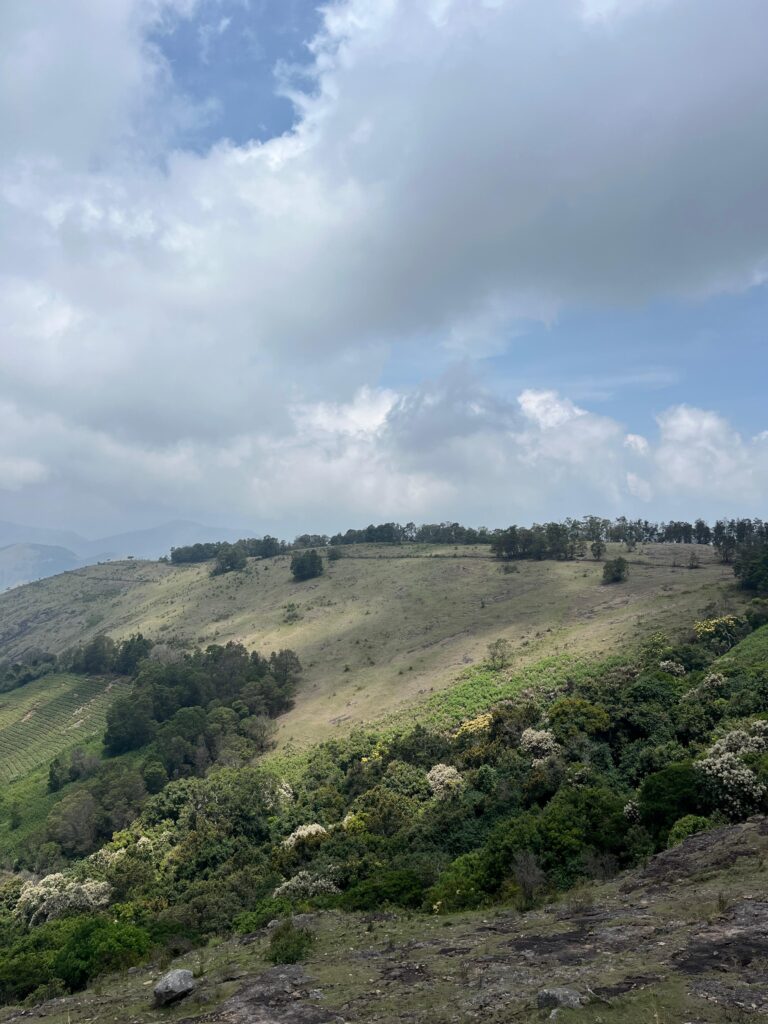
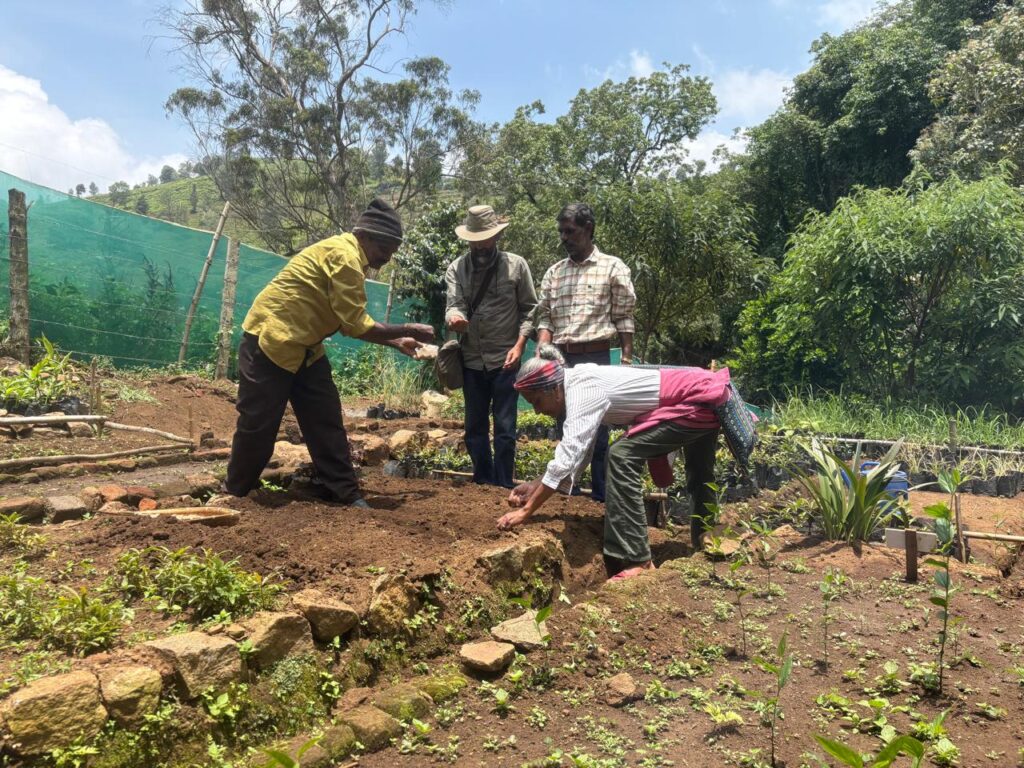
Key Takeaways
The workshop reaffirmed the importance of grounding ecological restoration in systems thinking, emphasizing the interconnectedness of ecological, social, and institutional factors. Participants collectively recognized the need to move beyond fragmented or quick-fix approaches such as Miyawaki plantations and CAMPA-funded projects, instead advocating for ethical, inclusive, and community-sensitive practices. Through intensive group work, field visits, and strategic discussions, the workshop reinforced the value of collaboration across desks and the necessity of clear communication to strengthen ERA’s unified voice. This voice, rooted in shared values and on-ground realities, must now be used to educate stakeholders and influence restoration policies across India. The workshop concluded with renewed purpose, a clearer understanding of ERA’s strategic role, and a collective commitment to advancing long-term, systemic change in ecological restoration—together and with intention.
Pictures from our field visits:
